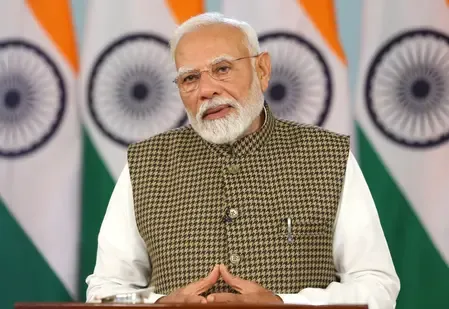Should the RSS Be Concerned About the Caste Census Being Used as a Political Tool?

Synopsis
The RSS has voiced concerns about the potential misuse of the caste census survey as a political instrument, emphasizing the need for careful handling of caste issues. This stance could significantly influence India’s socio-economic policies and electoral landscape, as the government prepares for this monumental data collection effort.
Key Takeaways
- RSS expresses caution over caste census.
- Concerns about political misuse are highlighted.
- Caste data should be used for public welfare.
- Emphasis on national unity in handling caste issues.
- Potential for redefining socio-economic policies.
New Delhi, May 1 (NationPress) The Rashtriya Swayamsevak Sangh (RSS) has expressed its concerns regarding the caste census survey potentially being utilized as a “political tool”, as reported by sources.
The organization has not made an official statement regarding the Union government’s initiative to carry out caste-based enumeration alongside the decadal census.
The RSS has historically opposed caste divisions and has maintained that matters like sub-categorization and the introduction of a creamy layer within quotas for Scheduled Castes and Scheduled Tribes should proceed only after “consultation and consensus building” with relevant stakeholders.
The Union government’s announcement to implement a caste census survey followed closely on the heels of a meeting between Prime Minister Narendra Modi and RSS Chief Mohan Bhagwat at the Prime Minister’s official residence.
The RSS, which has been championing the ‘Samajik Samarasta’ or social harmony initiative to unify Hindu society, has previously asserted that the caste enumeration issue should not be viewed through a political lens.
In a media briefing in Kerala’s Palakkad last September, the RSS’s chief spokesperson, Sunil Ambekar, emphasized that caste relations are delicate matters crucial for national unity.
He stated, “...This should be handled with utmost sensitivity and not in the context of elections or electoral politics.”
When queried about the demand for a caste census, Ambekar remarked, “The RSS believes that for all welfare initiatives, especially for communities or castes that are underprivileged and in need of special focus... if the government requires data, this is a well-established practice. In the past, such data has been collected... However, it should solely be for the welfare of these communities and not exploited as a political instrument for elections.”
The RSS reiterated that it supports the gathering of caste data, provided it is utilized for public welfare and not for divisive political agendas. This statement is now perceived as a significant endorsement allowing the Narendra Modi government to progress without facing ideological resistance from its core supporters.
With both the Bihar implementation at the grassroots level and the RSS’s national endorsement, the caste census now seems poised to reshape the framework of India’s socioeconomic and political policies, along with its electoral discussions.
In a nation still confronting issues of social justice, representation, and economic fairness, this initiative could offer the empirical basis that policymakers, social planners, and political leaders have long sought.
As the government gears up for this extensive data gathering, one thing is certain: the politics surrounding caste is evolving into a new era—driven by numbers, rather than just narratives.









